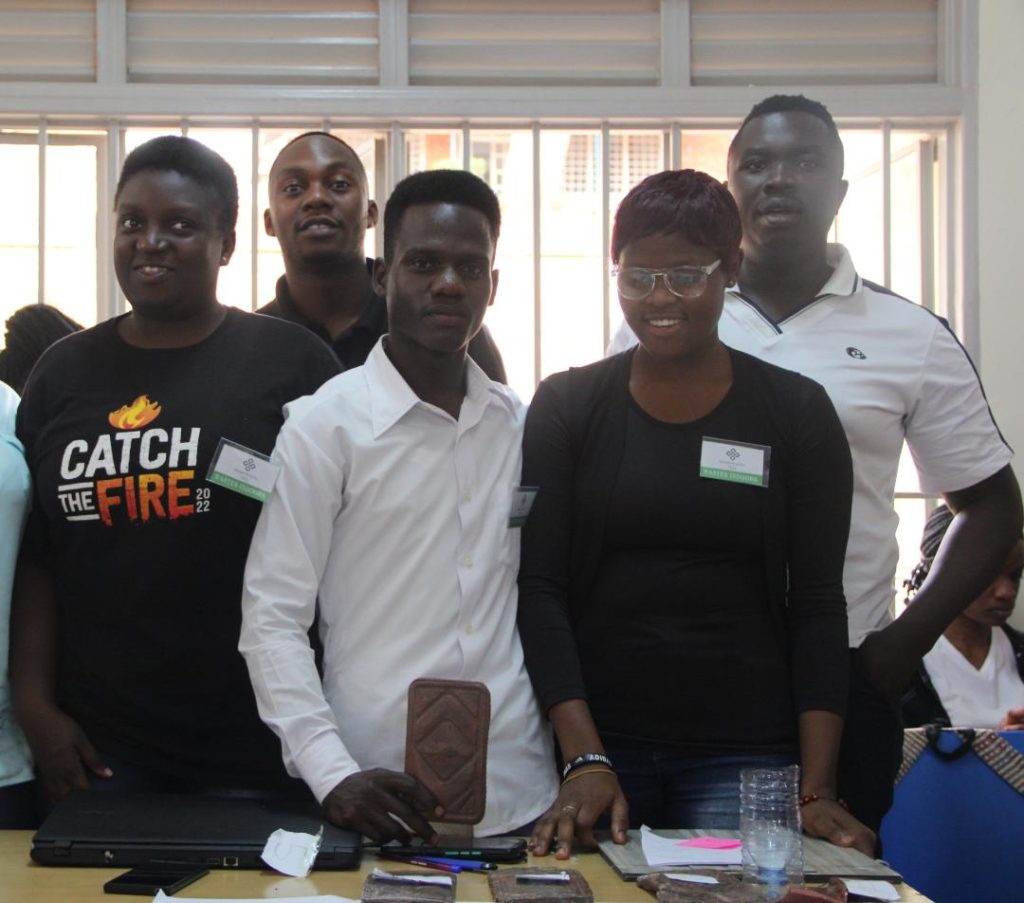By Eriah Lule
In an article published by the Observer on April 13, 2022, Ida Nakitto lost her husband as a result of an accident in the bathroom.
According to a report of 2012/2013 Uganda National Household survey, 2.3 per cent of households in Uganda use floor furnishings like tiles . Today, the number is believed to have rapidly increased, more so in urban settings.
Dr. Olive Kobusingye, a consultant trauma surgeon, says the number of tiled accidents is increasing . She adds that they get many patients with many head injuries that are traced back to slipping on either bathroom tiles or in bathtubs.
However, a group of students from Uganda Christian University (UCU) pursuing a Bachelor’s Degree in Procurement and Logistics Management sought to find a solution to this escalating evil by developing plastic tiles.
Through their project, Ainam Plastic Tiles, they sought to convert plastics to convert them into tiles. This project didn’t only look at combating accidents but also conserving the environment through controlling the mass littering of plastics.
According to Akiki Eunice, one of the group members, the whole idea started in class after these students were introduced to a course unit called Sustainability. “We wanted to transfer our classroom knowledge to practicality,” she said.
The whole idea started with the group collecting plastics from different hostels, but basically High Density Polyethylene(HDPE) plastic since it’s very versatile while working with and doesn’t release carbon monoxide gas, which is toxic.
This group lives to give gratitude to the internet. Even before their inception stage, they got their research from the internet. We did everything based on our research, we excavated from the internet, we tried even consulting other people in the field, though it was more of the internet”, said Maurice Atwenda.
The whole production process was done at Isaac Edeu’s hostel (group member). According to him,after getting support from the hostel management, he scheduled a day to carry out their production since most students were not around.
The project is a work in progress. The group is still testing the effectiveness of their product. “With this project, we believe in saving both human lives and the environment. It’s shooting one bird with one stone,” said Edeu ” We provide plastic tiles and also try to control the massive litter of plastic.”
The group works as a whole without allocating duties to who is doing what from the starting point.
Vincent Kisenyi, the Dean of the School of Business, was very gratified by the students’ projects that were targeted to fight environmental degradation and floors that have become death traps, a big threat the country is facing.
“We are willing to support our students to implement their products so they achieve both academically and financially,” said Kisenyi. ” As the university administration, we are trying to work with different organisations to fund such projects so they are executed.”
According to Kisenyi, the school is going to engage with the sister faculty of engineering and design under their department of renewable energy to devise a means of executing this project in a professional manner to benefit society at large.
The group is made up of five members, all of whom are in their third year last semester. They all agree to carry on with this project after school as a way of fighting the increased unemployment in the country.


